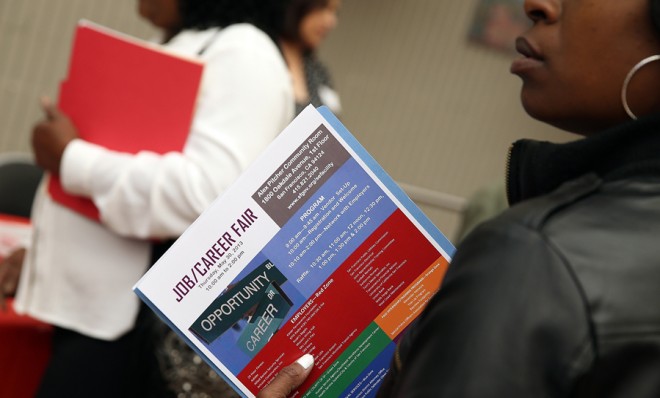Ouch: The economy added just 162,000 new jobs in July
The job market could be in a hole for years to come

A free daily email with the biggest news stories of the day – and the best features from TheWeek.com
You are now subscribed
Your newsletter sign-up was successful
The economy added 162,000 new jobs in July, the Bureau of Labor Statistics said Friday, missing expectations of 185,000 and "whispers" of 200,000. The report marks the 34th straight month of very sluggish job creation.
Payroll gains in June and May were also revised down 26,000 in total. At this pace, it would take seven more years to make up for the jobs lost in the Great Recession, says The New York Times.
Unemployment fell to 7.4 percent, from 7.6 percent, though the drop was partly attributed to workers dropping out of the labor force altogether. Binyamin Appelbaum of the Times had this to say:
The Week
Escape your echo chamber. Get the facts behind the news, plus analysis from multiple perspectives.

Sign up for The Week's Free Newsletters
From our morning news briefing to a weekly Good News Newsletter, get the best of The Week delivered directly to your inbox.
From our morning news briefing to a weekly Good News Newsletter, get the best of The Week delivered directly to your inbox.
In addition, 46,800 of the jobs created — the largest chunk — were in retail, a low-paying sector with a lot of part-time jobs, deepening a worrisome trend that could have a harmful impact on the economy and the well-being of American workers. Indeed, two-thirds of July's jobs gains were part-time, according to the bureau's household survey.
On top of that, the average work week dropped slightly to 34.4 hours and the average hourly wage fell by two cents to $23.98 (though it jumped 10 cents in June).
To recap: "Hours were down, earnings were down, participation was down, and there were more part time workers," says Douglas Holtz-Eakin at The American Action Forum. "Hardly the signs of a robust economy."
The tepid job growth falls in line with government data released Wednesday showing that GDP expanded just 1.7 percent during the second quarter, well below pre-recession levels.
A free daily email with the biggest news stories of the day – and the best features from TheWeek.com
All of which brings us back, as usual, to the Federal Reserve. Earlier this summer, Fed Chairman Ben Bernanke said the central bank could start reeling in its enormous stimulus package — in which it buys $85 billion in Treasurys and mortgage-backed securities each month to tether interest rates to the floor — so long as the economy keeps adding jobs, and the unemployment rate continues to sink, ideally to 7 percent.
The slow job growth, along with the disappointing GDP data, will give Bernanke and friends a lot to gnaw on in the coming months as they make their decision.
The bright spots: Manufacturing added 6,000 jobs, ending its four-month losing streak. And state and local governments actually created some jobs last month, for a change.
The bottom line, as economist Justin Wolfers puts it:
Carmel Lobello is the business editor at TheWeek.com. Previously, she was an editor at DeathandTaxesMag.com.